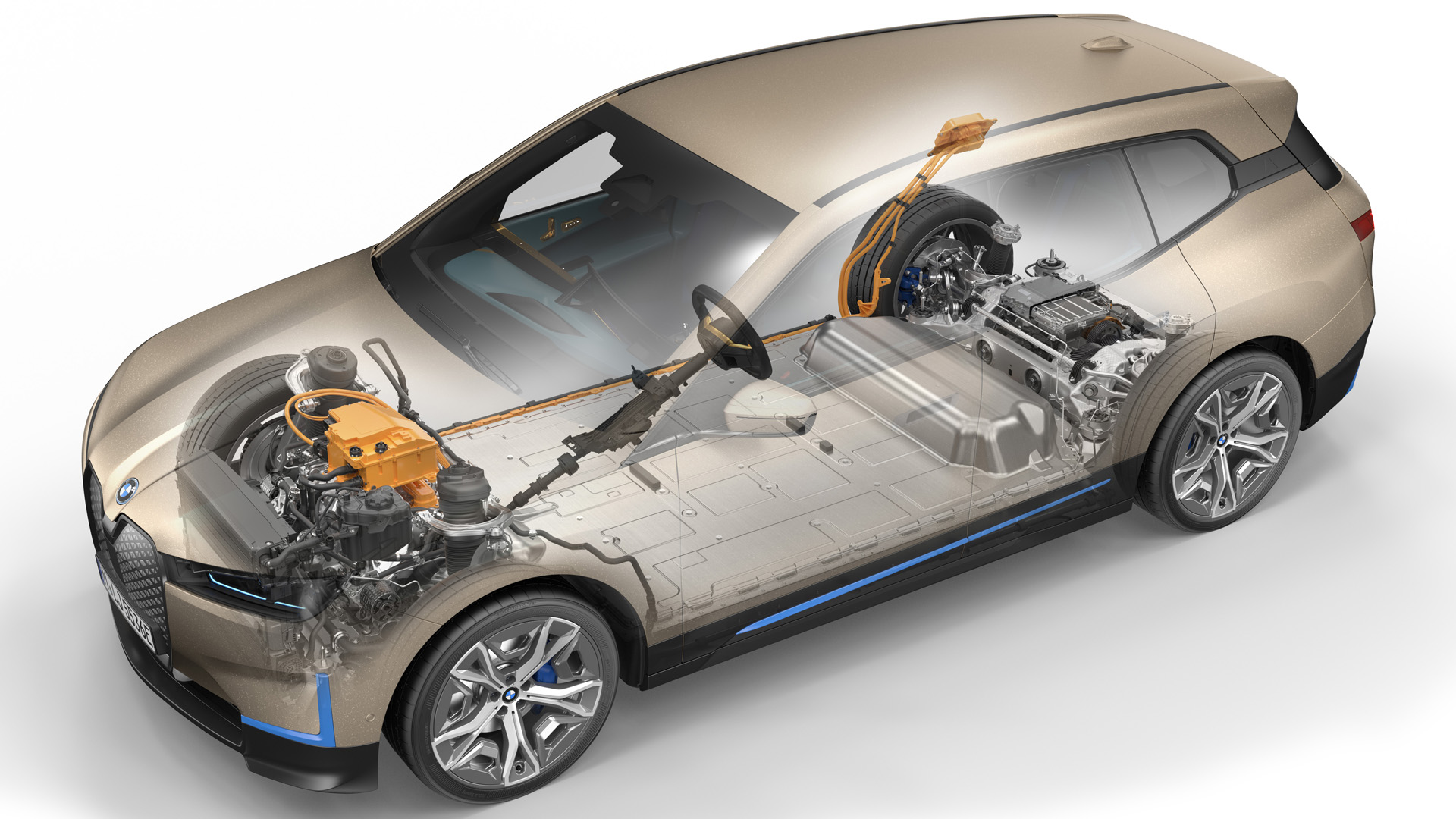

BMW has said it will not be investing in the lithium-ion gigafactory race that many other automakers are, choosing instead to work with partners as battery technology develops. Unlike Volkswagen or GM, which have both announced ambitions for 240 gigawatt-hours of battery production by 2030, or Mercedes and Tesla, which are building Germany-based gigafactories for battery production, BMW says that battery technology is changing too fast for an investment into specific facilities right now to make sense.
In the meantime, BMW is investing in solid state battery builders Solid Power, which it’s already been working with. At the start of May, it announced a joint investment into Solid Power, along with Ford and Volta. Ford then subsequently announced, following the F-150 Lightning’s reveal, that it will be making batteries to the same capacity tune as GM or Volkswagen’s promised 240GWh by 2030 in the United States. BMW says, though, in a landscape where battery technology will change radically over the next decade, it’s too early to call that.

Speaking to press ahead of the launch of its latest electric vehicles, the iX and performance editions of the i4, BMW’s Chief Technology Officer Frank Weber explained that the company saw itself as looking at the long term of a product that is still in a pubescent phase of rapid development.
“You can expect, every three years, significant enhancement here for battery cells. Chemistries are improving, energy and power density are actually getting better all the time. But so far, we have enhanced lithium ion batteries from 2010,” explained Weber. “Since the last 12 years, we are using lithium ion and this will continue up to 2025 that lithium ion technology will really be the core technology.”
He said that although new technologies were constantly emerging, development had to be taken into account. “The other thing you need to understand, taking a battery, cell chemistry or a technology from a laboratory from a very early phase into a serious production where you produce millions of cells every day, it takes almost 10 years to get from this phase.
“Therefore, you see many announcements about new battery technologies for super high energy density that solve all of our problems. But the problem is not so much getting in small scale a battery solution. The issue is to take this and have then millions of cells produced every day in a way that they work in vehicles over 10 or more years.”
Reflecting that, Weber said that the battery market was simply in too much flux currently for serious investment in specific facilities to make sense in 2021. “So then what our decision was, is the battery cell market has too much change in it. So we will not build our own gigafactory.
“We think, strategically, this would not be wise at this point in time, because when you have technology updates every three years and you have suddenly a plant that sits on one technology, I think you understand what I mean.”
Weber said that BMW’s partner strategy was intended to give them flexibility “Our strategy is different. Our strategy is we really understand battery cells in detail. What does it mean? We are not just buying battery cells somewhere. We have a thousand people working just on battery cell technology. We are working on chemistry, on production, on everything that is necessary for those cells to get them into our vehicles. And we look at battery cell manufacturers truly as partners, we are developing those solutions together with them.”
BMW views its investment into solid state technologies to be working towards a vehicle-ready solution, Weber explains. “Now with Solid Power, where we made our investment in all solid states, that became obvious, because we are working with them already for five years. So this is not just investment, we have a five year relationship with them. So we said now we come to the point where I think all solid state technology looks very promising—very, very promising.”
Currently, there are no prospects for solid state batteries in cars. Despite announcing it would have them in production imminently in 2017, Fisker finally dropped its solid state program earlier this year.
Weber said that the opportunity to work with Solid Power meant BMW would have access to solid state technologies and development before it reached that crucial stage of suitable for car production en masse. “You will see by the end of the ’20s, high volume serious production solution for all solid state.
“Therefore, we said, ‘OK, we want to have a much closer connection with them’ because then the first battery cells that can work on smaller scale, you will already see by 2025 and therefore we made that connection. We have a very close working relationship and we understand their electrolyte technology very well. And so the decision was made because we thought they have a competitive edge over other old solid state companies.”
Got a story tip? Mail me on hazel@thedrive.com